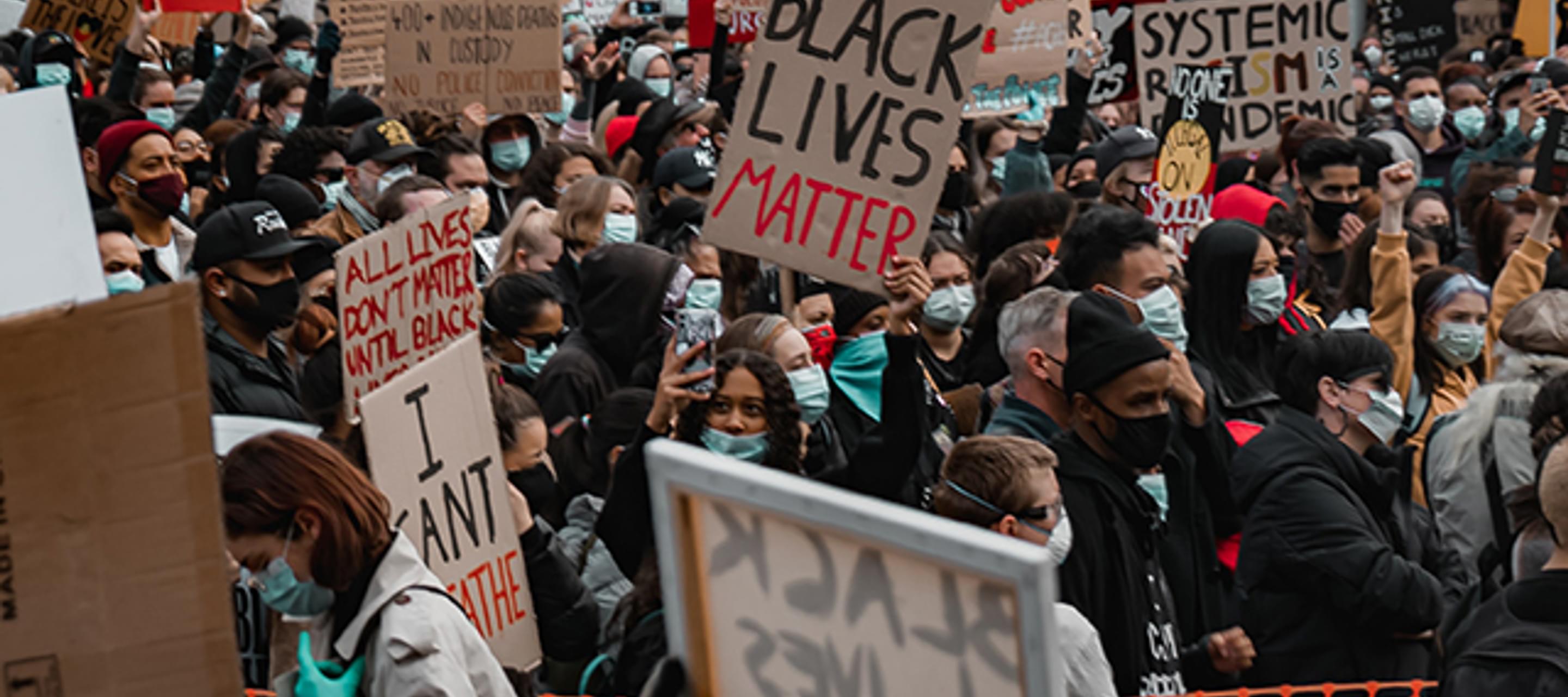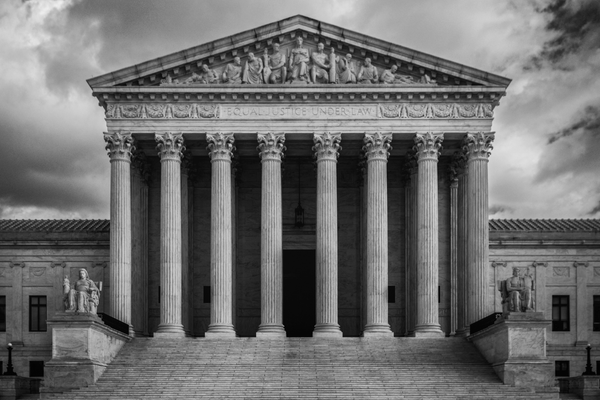Black Lives Matter - A Moral Moment
15 June 2020

Black Lives Matter
IHRB is founded on a mission of equality and dignity for all. We seek always to be as inclusive as possible – in our research, outputs, convenings, and partnerships. But we recognise that we have not done enough to contribute to breaking down the systemic racism pervading every aspect of society. There is clearly so much more that we – as individuals, as an institution, and as part of the business and human rights movement – can do in combatting discrimination and fostering racial justice around the world.
The two pieces we are publishing today are personal reflections from our team. They are the beginning, not the end, of our work. We are committed to engaging with long-standing and new allies about how we, individually and collectively, can better challenge engrained systems perpetuating inequalities. In the time ahead, we will be amplifying as many voices and inter-connected issues as we can and systematically reviewing the way we analyse and embed anti-discrimination outcomes in our mission, programming, and operations. We welcome commentary, dialogue, and reflection on how IHRB, the business and human rights movement, and the corporate sector can concretely work together to foster societies that truly value the inherent dignity and equal rights of all people – we are listening: info [at] ihrb.org
“It's been a long, long time coming, but I know a change is gonna come...”
It is hard to resist repeatedly listening to Sam Cooke’s iconic song from 1964 at this moral moment of reckoning in the United States and around the world. Cooke’s voice from many decades ago sings out again today, urgently conveying at once the deep pain of racial injustice, the steely determination to fight back, and the call to hope - a conviction that a better future is within reach... "that change is gonna come."
The perils of this moment are evident.
Multiple crises are unfolding: the continuing increase in deaths due to the COVID-19 pandemic and related strains on health systems; the resulting economic collapse and sharp rise in unemployment not seen since the Great Depression; and in the U.S. specifically, mounting concerns over the ability of the country to manage an upcoming presidential election so that all can participate, to say nothing of other institutional crises like crumbling infrastructure and lack of investment in public education.
The perils of this moment are evident. Multiple crises are unfolding.
And in the middle of it all, the horrific killing of George Floyd by police officers in the U.S. city of Minneapolis last month has brought another critical challenge into full view.
Police abuse in this and many other incidents over a long period has triggered waves of demonstrations and demands for real accountability and wider reforms. We are rightly being forced to face a crisis that has never been fully confronted, that too many of us have ignored or turned away from - the systemic racism and discrimination that is a core part of ongoing economic and social injustice experienced every day by millions of people in all countries.
Some still wish to deny the scope of the problem, in part by pointing to all the places where progress has undoubtedly been made. Others say past efforts to tackle racism and discrimination of all kinds have failed to address these injustices and see little reason for optimism that tomorrow can be better than today.
But this moment feels different.
But this moment feels different. More and more people are gradually awakening to the pressing need to take on systemic injustices. More seem to recognise an opportunity, indeed a responsibility, to begin the work of reimagining how our schools, workplaces, communities, and nations can be places where all are respected for who they are.
In just the past few weeks, signs of cultural and political change have become visible in big ways and small.
Actions in cities around the world to remove statues and monuments celebrating individuals linked to slavery and racism demonstrate the power of historic symbols in shaping debates about what our societies should be like today. Similarly, steps to consider renaming military bases or other public buildings linked to racist figures of the past show an awareness that change is needed on so many levels, and that it is possible.
Businesses are speaking up as well. This could be seen in the decision by the commissioner of the U.S. national football league to release a statement admitting the league was “wrong for not listening” earlier to Colin Kaepernick and other players who had previously sought to raise awareness of racial injustice. The NFL commissioner said the league would now “encourage all to speak out and peacefully protest.” In addition, the NFL has committed US$250 million over ten years to fund programs aimed at fighting systemic racism.
The cultural ground is shifting and businesses feel it.
These are first steps in the right direction.
The call that “Black Lives Matter” is finally being widely embraced. The cultural ground is shifting and businesses feel it. Some are acting by removing advertising from divisive voices in the media while others are supporting minority owned businesses and using their outreach to customers to suggest specific actions they can take to foster positive changes locally.
The challenge for us all is to ensure that slogans and signs of support aren’t just public relations or empty gestures but actually contribute to deeper and lasting reforms.
Business representatives, alongside government officials, and all other actors in society, have to be part of the difficult conversations ahead in confronting past wrongs and must be at the table to forge more equitable societies.
It is encouraging to see U.S. business leaders launching an initiative later this month to "address inequality of opportunity through education, employment, entrepreneurship, and criminal justice reform." This can’t be just a one-time town hall dialogue. The business community, just like all of us, needs to be in it for the long term and involve many other voices and perspectives, in particular those who have been most directly impacted by racism and discrimination.
We have a chance in this moment to impact not just the course of one country but to advance the causes of racial, economic, and social justice for the entire world
The starting point for any discussion needs to be recognition of our shared humanity and a commitment to respecting the human rights of all people. But what else should we expect of leaders over what will likely be many more turbulent months, both because of the continuing shock of COVID-19 and because of the growing demands for economic and social reforms?
There are plenty of good ideas out there for business and other leaders to seriously consider, including scaled up efforts to invest in workforces that are truly representative of all racial and ethnic groups as well as steps to improve diversity in executive management. Managers need to look again at issues like equal pay and representation targets and where they can foster relationships with a more diverse range of suppliers.
Finally, business leaders in particular can’t forget the connections to their roles in contributing responsibly to wider policy debates on issues including the 2030 development agenda, paying taxes, and planning for just transitions away from fossil fuels and towards economies that will foster green jobs and a sustainable future for all.
Change often comes when least expected. In March 1965, the voting-rights marches from Selma to Montgomery, Alabama - at which state troopers charged and attacked a line of nonviolent demonstrators - proved to be a pivotal moment and step forward in the long struggle for racial justice in the United States.
Connected as never before as one human family, we have a chance in this moment to impact not just the course of one country but to advance the causes of racial, economic, and social justice for the entire world. It is up to us all to see to it that change is gonna come.
Image: Unsplash/Tony Zhen




